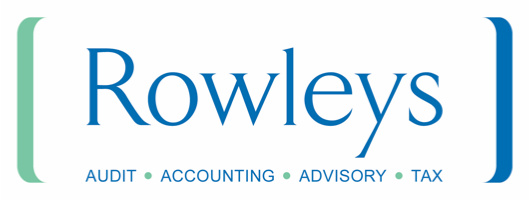News & Events
Does the predicted legacy boom offer forward thinking charities some much needed good news?
10th December 2020
A new joint report from the Institute of Legacy Management (ILM) https://legacymanagement.org.uk/, Remember A Charity, Legacy Foresight and the Smee & Ford https://smeeandford.com/, a publisher that specialises in legacy commentary, predicts a legacy boom that could be worth up to £40 billion to those charities willing to act now to capitalise on this exceptional level of growth.
According to the report the last 20 years has seen a huge increase in legacy giving. The number of Wills that include gifts to charity is now over 16%. Meanwhile, the annual value of charitable estates has grown from £4.9 billion in the late 90s to £17.6bn today and most of that growth has occurred during the last 10 years.
At the launch Polly Avgherinos, Managing Director, Smee & Ford, was quick to highlight this trend and massive effect it will have on charities:
“Over the past 20 years, we have witnessed a positive change in legacy giving, with the number of people leaving a gift to charity, the value of charitable estates and the resulting value of charitable gifts in Wills all growing strongly. Despite the challenges of this year, the combined data and insight in this report clearly demonstrate that legacies will remain a significant and growing source of income for the future.”
The report suggests the reason for this rate of growth is down to a combination of the recent increase in demand for Wills caused by the COVID pandemic and the anticipated size of the estates the baby boomer generation will leave.
While this is obviously good news for a charity sector that has been hit hard by COVID, the report is also clear in saying that in order to capitalise, charities must act now.
In the authors’ view charities need to keep getting better at promoting how vital it is for people to continue to include legacy gifts to their favourite charities in their Wills. This is especially important because with over 10,000 charities being named in Wills each year, the legacy market has never been as competitive.
The report titled ‘Strengthening Charities’ Resilience with Legacies’ https://www.rememberacharity.org.uk/media/yvnb05yq/legacyresiliencereport_2020.pdf also estimates charities will receive around £3.1bn in legacies in its very positive introduction:
“This will provide the recipient charities with some much needed stability following the wide-scale disruption the pandemic has caused to their fundraising efforts. As the report says:
Legacy giving shapes the world around us and this has been more evident in 2020 – during the coronavirus outbreak – than ever before. While many fundraising channels and activities ceased, gifts in Wills – the largest source of voluntary income – sustained vital charitable services across the UK. This year, despite a backlog at probate, they are expected to contribute an even higher proportion of charitable revenue than in former years.”
The report also includes some practical recommendations designed to help charities adapt the way they could approach fundraising, especially as the current restrictions continue to dictate what fundraisers and can’t do.
Their advice is clear. Fundraising teams should continue to invest what they can into raising public awareness of the importance of legacy gifts. This could involve refreshing their charity’s proposition and finding new ways to promote that proposition using new channels and new messaging.
There is also a suggestion that charities could explore ways to collaborate with other charities so that all parties achieve greater critical mass in terms of raising awareness across society as a whole.
However, despite the obvious attraction of potentially increasing their legacy revenue, charities will need to remain aware of how to account for legacy gifts.
With regards to the gifts themselves it is always good practice to monitor any legacies you receive from the time you are notified you will be receiving the legacy until it arrives.
This, as the SORP states, is the only time it can be officially recognised and only then if there has been grant of probate, the executors have established that there are sufficient assets in the estate and any conditions attached to the legacy have been met.
For larger charities and charities who traditionally receive a significant portion of their revenue from legacies there is also the question of disclosure to consider.
If your charity has been notified about a legacy but you have not included it your Statement of Financial Activities (SoFA) because the conditions for recognition have not yet been met, an estimate of the amount you are due to receive should be disclosed in your notes to the accounts.
However, if you are a smaller charity or a charity that only receives the occasional legacy gift, you simply need to know how to recognise each gift and how to report it in your accounts. As accountants who specialise in the charity sector, we can of course give you a steer in the right direction.
If you would like to discuss your charity’s approach to legacy gifts or have any other questions about the way your charity manages its accounts, please call Robert Radford on 0116 282 7000 or email Robert at robert@rowleys.biz today.
